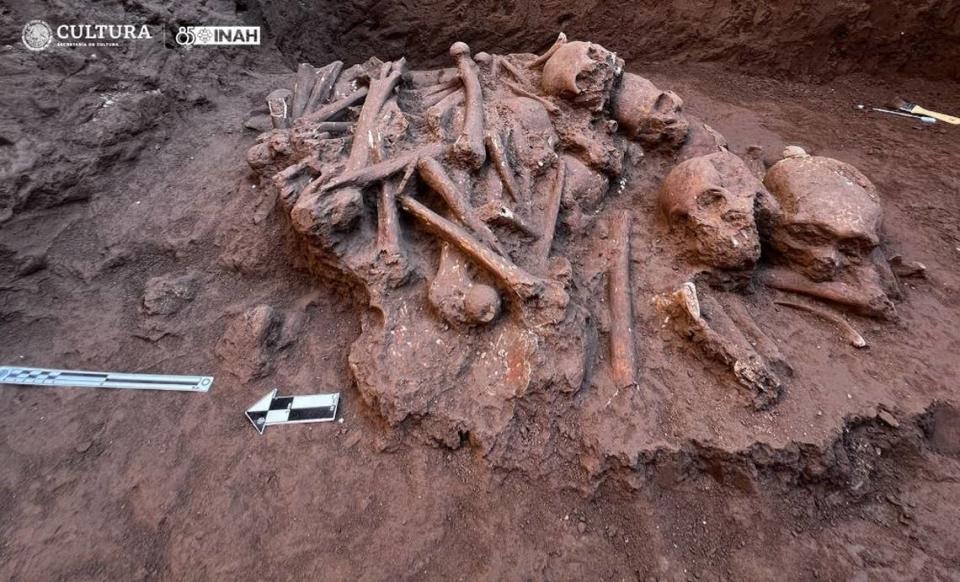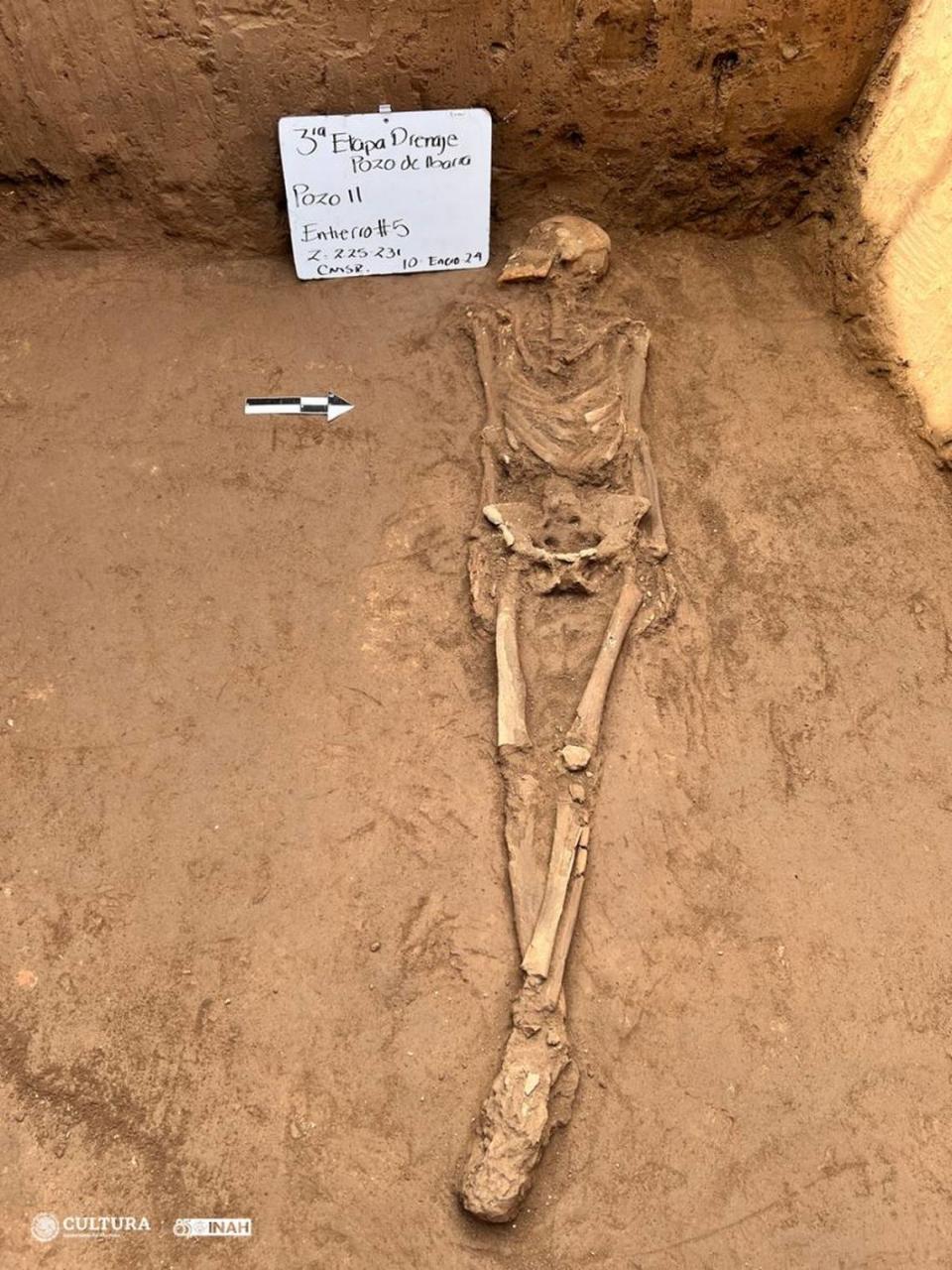Trove of 1,000-year-old skeletons — an unprecedented discovery — unearthed in Mexico
About 1,000 years ago, a collection of skeletons were strategically buried in Mexico: Skulls were stacked and femurs were placed in their own section.
Since then, the burial remained hidden underground — until now.
Archaeologists in the town of Pozo de Ibarra recently discovered the trove of bones amid a sewage network construction project, according to a Feb. 26 news release from Mexico’s National Institute of Anthropology and History (INAH).

Uncover more archaeological finds
What are we learning about the past? Here are three of our most eye-catching archaeology stories from the past week.
→ 2,400-year-old underground discovery stumped experts for decades — until now
→ 800-year-old toy unearthed after firehouse demolition. See it
→ Metal detectorist unearths 'one-of-a-kind' gold treasure from 1,400 years ago. See it
In the burial, researchers found long bones, including femurs, tibias, rays and ulnae, placed in their own sector. Skulls were grouped elsewhere, and some of them were stacked on top of each other. At least seven complete skulls were unearthed.
Some of the skulls had evidence of cranial modification, which was done for aesthetics and social distinction in certain Mesoamerican cultures, researchers said.
Photos show the ancient buried remains.

Ceramics and figurines found among the remains date to the Amapa cultural phase, which lasted from 500 A.D. until about 850 A.D., so archaeologists believe the burial is from the same time period.
Experts said the remains were buried after they were skeletonized and were likely part of a specific ceremonial practice. They could belong to males of the same family as part of a ritual to celebrate a settlement’s founding.
The discovery is unprecedented, and no other similar burials have been found in nearby sites, according to archaeologists. The burial provides greater insight into the lives and practices of pre-Hispanic society in Mexico.
Pozo de Ibarra is in western Mexico, about 430 miles northwest of Mexico City.
Google Translate was used to translate a news release from Mexico’s National Institute of Anthropology and History.
2,400-year-old underground discovery stumped experts for decades — until now
Treasure-filled cave held weapons — including dart thrower. See 1,900-year-old finds
Hunt for ancient Roman pottery workshop leads to much older ‘exciting’ find


